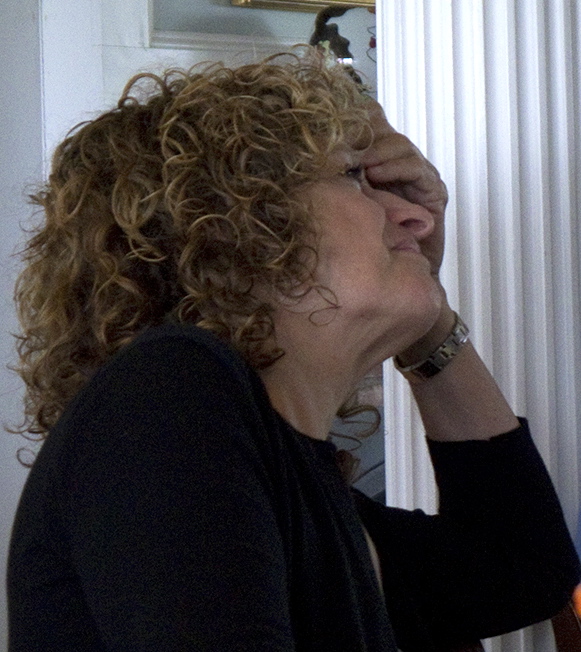One of the many strengths of the New Directions program is the opportunities it provides to alumni not only to participate in on-going alumni groups, but to potentially participate in the program post-graduation as small group leaders or even weekend organizers. Such was the case with our October 24 – 26th weekend, organized by New Directions alumni Sheila Felberbaum and Linda Sherby.
The weekend, themed “Therapeutic Passages: Midlife and Beyond” offered an opportunity to consider how writers and analysts may be able to use mid- and late-life passages — children leaving home; later career opportunities and challenges; the arrival of grandchildren; facing health crises, caretaking and mortality with our parents, partners and other loved ones; and experiencing our own declining health and stamina — to advance our creativity and growth.
The weekend’s speakers included Ann Burack-Weiss, a clinical social worker with a private practice and a faculty member in the Masters program in Narrative Medicine at Columbia University. Dr. Burarck-Weiss is the author of four books, including The Caregiver’s Tale: Loss and Renewal in Memoirs of Family Life. She discussed this text, an examination of the narratives of caregivers, as an example of passionate research.
Joyce Edwards, a social worker and psychoanalyst with three co-edited books, spoke on the critical importance of friendship in one’s later years and provided a clinical example in which her relationship with a patient fostered the patient’s capacity to have friends.
Madelon Sprengnether, a poet, memoirist, and Regents Professor of English at the University of Minnesota, is also New Direction alumni as well as the organizer of the Spring 2008 weekend Writer/Analyst. In the prelude to her talk, Madelon said of her time at ND: “I was a member of this community for ten years. I couldn’t let go. I loved every minute of it and I’ve never found anything like it anywhere else or any group to replace it.” In her talk, she drew on her life-long love of the play A Trip to Bountiful to explore the function of memory across the lifespan – both her own life and in the late life of the play’s protagonist, Carrie Watts.
Finally, we had the pleasure of hearing from Linda and Sheila themselves. Linda began with the story of her affiliation to New Directions and of her growth in confidence as a writer, culminating with the 2013 Routledge publication of her book, Love and Loss in Life and Treatment. Drawing on both personal memoir and clinical case material, this book tells the story of Linda’s loss of her beloved husband, George, and illustrates how the life of the analyst necessarily affects both the patient and the treatment. Since the publication of the book, Linda has applied some of her passion for writing to a weekly blog, Inside/Outside, in which she illustrates and explores issues that arise in therapeutic treatment. Describing her passage into becoming a disciplined writer, Linda concluded her talk by telling us, “You can write. You have to hone your craft. You have to believe in yourself. You have to carry more than a hostile audience in your head and you have to know your time to write.”
http://http://youtu.be/Qv1p2_JsKOY
Sheila, with her wry and wonderful sense of humor, took us on her journey from a 2008 New Directions weekend that featured playwrights Jessica Blank and Eric Jenson who helped Sheila begin to see her writing as spoken dialogue in her head. Inspired by their work and words, Sheila then enrolled in Mind the Gap, an intergenerational workshop taught by playwrights that brought high school students together with writers over the age of sixty. Each participant wrote a play based on interviews with her/his partner; the plays were then read on stage by professional actors. From this, Sheila’s play Trauma Ties emerged. The richness of intergenerational collaboration continued for Sheila as she later faced a group of mostly 20-year-old students in a course on death and dying. Dealing with seven recent deaths of her own family members and friends, Sheila began the first night of class by reading a poem about her mother’s death. The poem, written when a student in New Directions, drew her students into their own deeply felt experiences of death and its losses, setting into motion a journey to be shared across the semester.
It was gratifying during this New Directions weekend to see people who began as students making their own passages within the program, taking the platform and delivering carefully and thoughtfully written papers. Sheila, Linda and Madelon are inspiring representatives of the kind of personal and professional growth that can occur in midlife and beyond, especially with the support and structure offered by the New Directions community.


















-thumb-225x147-367992.jpg)




Recent Comments